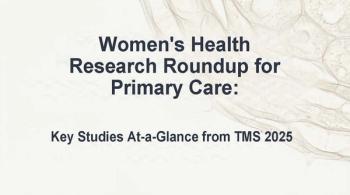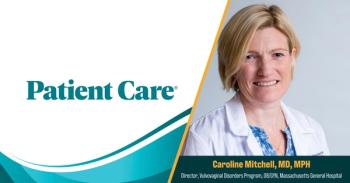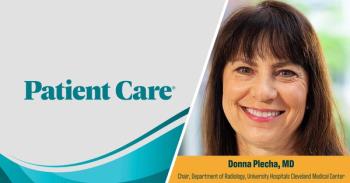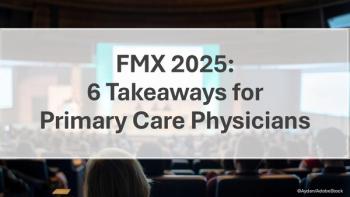
Highlights include widespread lack of structured menopause education in primary care residency programs, sleep benefits of elinzanetant, and more.

Highlights include widespread lack of structured menopause education in primary care residency programs, sleep benefits of elinzanetant, and more.

Cochrane shares her own research findings on how clinician specialty shapes menopause care and highlights gaps in hormone therapy prescribing.

TMS: Harvard's Caroline Mitchell, MD, MPH, questions the direction of genitourinary syndrome research priorities and reflects on FDA's removal of HRT warnings.

Study author Daniel Jiang, MD, PhD, discusses data linking hormone therapy to increased autoimmune disease risk in postmenopausal women and clinical implications.

Harvard's Caroline Mitchell, MD, MPH, explains how common OTC products can worsen vulvovaginal symptoms and the importance of a targeted history in GSM care.

Donna Plecha, MD, discusses how AI-powered mammography risk prediction and polygenic risk scores will enable personalized breast cancer screening within the next decade.

Breast imaging expert, Donna Plecha, MD, provides a roadmap for primary care physicians to implement risk assessment tools and high-risk clinic referrals in their practice.

Access, cost, and clinician awareness remain significant barriers to implementing supplemental breast screening, according to Plecha.

Breast imaging expert Donna M. Plecha, MD, explains the FDA's dense breast notification requirement and when to recommend supplemental MRI screening.

Mitchell highlights hormone therapy prescribing for primary care: treatment algorithms, vaginal estrogen safety, and when progestins aren't needed.

TMS 2025: Katrina Wugalter, MA, discusses research showing that age—not menopause stage—drives brain volume decline, and how lifestyle factors can help preserve brain health in midlife women.

TMS 2025: Regina Castaneda, MD, explains why reproductive stage is a critical variable in obesity and metabolic research.

Explore key clinical takeaways from FMX 2025, including updates on CGM, chronic cough, AAA screening, immunization, and more.

New research suggests hormone therapy may increase autoimmune disease risk in postmenopausal women. Dr Jiang discusses early findings and clinical implications.

TMS 2025: Dr Marla Shapiro doesn't start perimenopausal therapy without an answer to the most important question: "What is your most bothersome symptom?"

"If you don't know where your keys are, that's fine." Shapiro's memorable analogy helps distinguish perimenopause brain fog from serious cognitive concerns.

A quick quiz covering new research on menopause hormone therapy, Alzheimer risk, tirzepatide weight loss, and estetrol’s cardiovascular safety.

Genitourinary symptoms of menopause often are ignored--by patients and practitioners alike. Primary care clinicians are in a key position to identify, educate, and initiate treatment.

TMS 2025: Donna Plecha, MD, discusses how primary care physicians should approach breast cancer screening in women with dense breasts and use MRI effectively.


TMS 2025: Cochrane explains the impetus behind 2 studies she has authored on the patient- and provider-level factors that influence MHT prescribing.


New research from TMS 2025 covers menopause effects on brain volume, hormone therapy's role in weight loss with GLP-1s, and dense breast screening updates.

Early breast cancer screening at age 40, especially with 3D mammograms, significantly improves survival rates and quality of life, according to Dr Plecha.

Karim discusses secondary findings from the ELITE trial of timing for estradiol initiation, which reveal a notable impact on Aβ biomarkers of Alzheimer disease.

Menopause specialist Caroline Mitchell, MD, MPH, explains the dual nature of the breakdown in communication that can leave women virtually uninformed about GSM and treatment.

Jiang shares how to use new autoimmune risk data responsibly—identifying high-risk patients while avoiding unnecessary hormone therapy phobia.

Dr. Daniel Jiang shares unexpected research findings showing hormone therapy increased autoimmune disease risk across 15 of 17 conditions in postmenopausal women.

TMS 2025: Jiang explains why he investigated hormone therapy's effect on autoimmune disease risk in postmenopausal women.

The phase 3 E4COMFORT II trial found no impact on BP after 1 year of treatment in postmenopausal women with elevated HbA1c, lipids, and TGs.